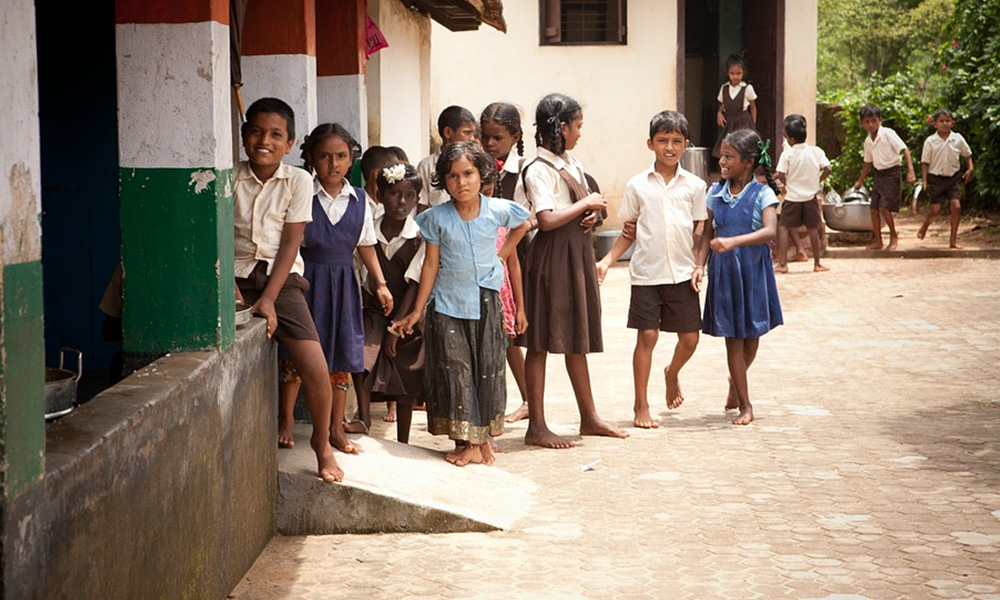The National Education Policy 2020, which came out last month had been a much-awaited document. When I started reading it, I had two scanners running simultaneously in my mind. One was the lens of a parent to two children attending a reputed school in the capital city and the second was of a development sector enthusiast passionate about the cause of equality in quality education for every child of her country.
As a parent, I felt heard. I found an acknowledgement of many of my concerns – the unnecessary stress due to the examination pressure, repetitive curriculum and rote learning in the current system. It advocates an open and multidisciplinary experiential approach towards learning. In that sense, NEP 2020 gave me an aspirational feeling. However, a closer look and on reading the subtext, NEP 2020 as a vision confounded me about the basic premise of being projected as India’s resolve to provide equitable education. It also seemed to be disconnected with the present ground reality on many fronts. It felt necessary to pause and assess this euphoria around a grand vision with some deeper reflection –
No clarity on the status of Right to Education
Right to Free Education which was passed in 2009 and implementation of it started in 2010, established the duty of the state to provide free and compulsory education for all its children from 6-14 years of age, basically till class 8th. We are in 2020 and RTE is still a law. However, NEP 2020 doesn’t treat it as the baseline. Yes, it does talk about universalising education from pre-school to the 12th and adds that suitable facilitating systems will be put in place, but it confuses by not stating clearly that RTE would be extended upwards or downwards. By relegating RTE as a past initiative, there is an impression to universalise education on the surface only but no clarity on how it will be achieved and ensured. There are millions of children who would be less than six years of age and the preparatory education sector operates in a pretty unregulated manner. Thus, without forcing the plans to come under the purview of a legal act like RTE, this would be a lofty idea put on paper without a legal underpinning for the states. A promise done without much thought on implementation details and the huge costs. It is sad and concerning that, an education policy document of the 21st century which is being advocated as forward-looking seems to bring closure to the dilution of an important law like RTE in this way.
The impetus to privatisation and unsustainable alternate school models
Even in a state like Delhi, there is a high percentage of low-income private schools which have mushroomed like anything in the past decade or so. The reasons have been the poor infrastructure of the state-run schools as well as the bias towards the quality being better in the private setups. Recent pandemic has shown how these setups are an unsustainable option in the long term as they are run on a low budget and cannot survive in such crisis, leave apart the quality education. Because NEP 2020 is silent on RTE and how universalisation will be achieved, it seems to be making provisions for the proliferation of such schools when it says ‘restrictions with regard to infrastructure and inputs of all kinds will be relaxed to allow non-government philanthropic organisations and alternative models of schools to come and set up and enable universalisation’. With this ambiguous and open-ended statement, the NEP 2020 seems to be encouraging not just the low fee-paying schools but also other options such as ideologically driven and one teacher schools which have seen a splurge in recent times, something which doesn’t go well with the pluralistic fabric of our country. Secondly, the policy’s thrust on privatization especially in higher education may act as a deterrent for education equalities and vistas for the disadvantaged and marginalized students.
Encouraging ghettoization – One basket of Socioeconomically disadvantaged groups Education can act as a great leveller taking care of the social and economic inequities. The NEP 2020 puts all the marginalised categories -SC, ST, OBC, minorities, the poor and disability (even special needs children) in one basket and calls them Socioeconomically disadvantaged groups. It is strange that a policy of education of the country disregards the constitutional categories and ignores the differences which exist in these marginalised groups which constitute more than 80% of India’s population. For these groups, it suggests Special Education Zones and provisions segregating the school system and teacher education system from the non-Special Education Zones. This includes community-led volunteering, peer tutoring, special certification courses for teachers in these zones which are different from the 4-year integrated model. This may further exacerbate the socio-economic inequalities, thus marginalising the already marginalised communities further. The Kothari commission…












